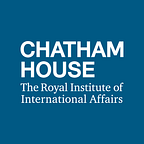Five Things You May Have Missed In the US and Americas This Week
President Donald Trump’s new approach to Iran, the fallout from Venezuala’s election, the Dodd-Frank Act, and much more.
(1) US secretary of state outlines Trump administration’s new approach towards Iran.
In his first major speech as secretary of state, Mike Pompeo stated Iran would face ‘unprecedented financial pressure’ made up of the ‘strongest sanctions in history’, as he outlined the administration’s new strategy after the president withdrew the US from the Iranian nuclear deal two weeks ago.
Pompeo also laid out 12 broad demands for Iran which focus on ending all of its nuclear enrichment and reducing its influence in the region. While Pompeo did not explicitly call for regime change, he did express openness to the idea, stating ‘the Iranian people will get to make a choice about their leadership’.
The speech continues the administration’s about-face from the policies of the Obama administration, and was met with opposition from European allies. While Pompeo hopes there would be ‘broad recognition that the strategy that President Trump has laid out is the right one’, UK foreign secretary Boris Johnson said ‘a new jumbo Iran negotiation’ addressing all of the US’ demands would not be ‘very easy to achieve, in anything like a reasonable timetable’. Iran’s foreign minister Mohammad Javad Zarif stated Pompeo’s speech was ‘merely a regression to old habits: imprisoned by delusions [and] failed policies’.
(2) Political fallout begins after Venezuela’s president is re-elected.
A tit-for-tat engagement between Venezuela and the US began this week after Nicolás Maduro was re-elected as president of Venezuela. On Monday, Donald Trump signed an executive order to ‘prevent the Maduro regime from selling or collateralizing certain Venezuelan financial assets, and to prohibit the regime from earning money from the sale of certain entities of the Venezuelan government’. Maduro condemned the sanctions and, in retaliation, expelled the top two US officials in the country, the Consul General and Charge d’Affaires.
Maduro was re-elected on Sunday with 68% of the vote on a 46% turnout — a significant drop from a turnout of 80% in 2013. US vice-president Mike Pence criticized the election as ‘a sham – neither free nor fair’ and the Lima Group of mainly Latin American nations stated it did not recognise Maduro’s re-election as legitimate.
Although Maduro’s legitimacy as president may be undermined by the low turnout, it remains to be seen whether the sanctions and universal condemnation will impact his grip on power.
(3) Congress approves first major rollback to Dodd-Frank Act
On Tuesday, the US House of Representatives voted 258–159 to approve legislation that rolls back a portion of the 2010 Dodd-Frank Act, enacted to reform Wall Street following the 2008 financial crisis.
The Economic Growth, Regulatory Relief, and Consumer Protection Act frees smaller banks from strict federal oversight and lessens regulatory restrictions on the US banking system. House speaker Paul Ryan stated the new legislation ‘is a major step forward in freeing our economy from overregulation’.
The regulatory rollback is viewed as a victory for President Trump, who advocated for the dismantling of the Dodd-Frank Act throughout his campaign. While Dodd-Frank was passed by Democrats, 33 of them supported the latest Republican-led legislation.
A large portion of the regulatory system created under the act will remain in place following passage of the latest bill, but many Republicans remain hopeful this is the ‘first of many [deregulatory] legislative pieces to come’.
(4) Bipartisan backlash mounts as US-China trade talks and ZTE negotiations continue
Trump announced on Tuesday that trade talks with China still ‘have a long way to go’ and ‘there is no deal’ yet to protect Chinese telecommunications company ZTE from the US sanctions that have crippled the business — contrary to reports China and the US ‘agreed on the broad outline of a deal’.
After initially taking a hard line on China’s practice of ‘forcefully acquiring US intellectual property’ and backing US sanctions against ZTE for violating a settlement, Trump now favours a new deal to prevent the company from closing. During a White House press conference, he suggested the deal include a change in ZTE’s management, a $1-1.3 billion fine and purchasing requirement from US companies.
But this proposition provoked backlash in Congress, with both Republicans and Democrats urging the president to take action ‘against serial and pre-meditated violators of US law’. On Tuesday, the Senate Banking Committee approved an amendment in a bipartisan 23–2 vote that would require Trump to confirm to Congress that ZTE is compliant with US laws before lifting sanctions on the company.
(5) Trump cancels June summit with North Korea
On Thursday, the White House released a letter from President Trump to North Korean leader Kim Jong Un, cancelling their ‘long-planned meeting’ in Singapore. Trump wrote that his decision was ‘based on the tremendous anger and open hostility displayed in … [Kim Jong Un’s] most recent statement’. The summit was cancelled on the same day that North Korea publicly dismantled its only known nuclear test site.
President Trump had announced plans for the historic face-to-face 12 June summit earlier this month, after months of escalating public threats between the US president and North Korean chairman. In recent weeks, Trump has been lauded for his work with North Korea and nominated by House Republicans to receive a Nobel Peace Prize. However, prior to Trump’s announcement, former government officials expressed concern over the fast pace of recent events and suggested the summit be postponed to allow for additional preparation.
